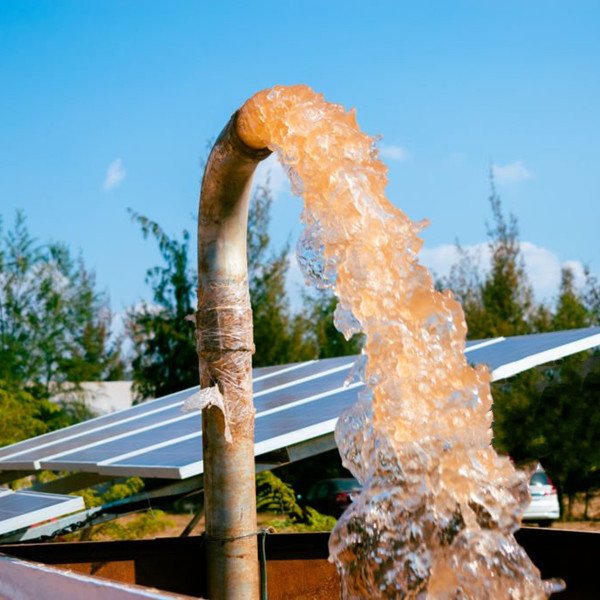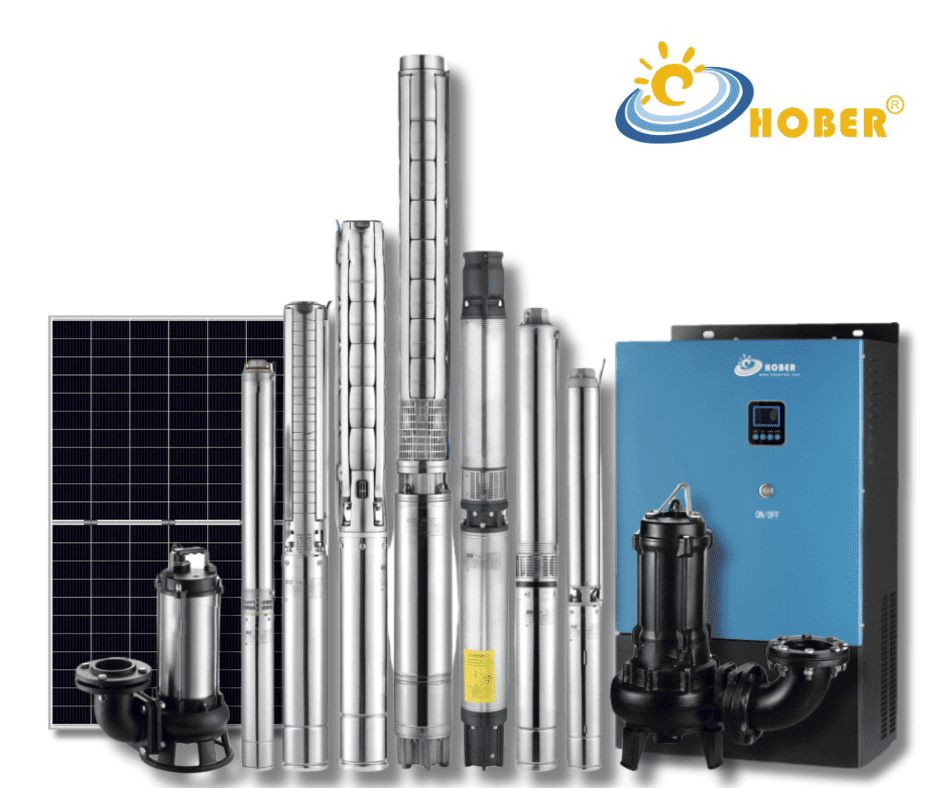Solar pumps have become a popular choice for efficient and eco-friendly water solutions, particularly in off-grid areas that lack reliable electricity. They are widely used for irrigation, water supply, and more. However, solar pumps, like any technology, can face operational issues and may stop working for various reasons. Understanding these potential problems can help you troubleshoot and maintain your system for optimal performance.

Introduction to Solar Pumps
Solar-powered pumps operate using energy from photovoltaic (PV) panels, which convert sunlight into electricity to power the pump. These systems are favored in remote locations due to their low maintenance requirements and environmentally friendly nature, making them an ideal solution for agriculture, water supply, and other water pumping needs.
Common Reasons Why Solar Pumps Stop Working
Solar pumps can stop functioning for several reasons, including mechanical failures, electrical issues, and environmental factors. Let’s explore each of these common causes.
Mechanical Failures
Mechanical problems within the pump are a leading cause of malfunctions. The moving parts in a solar pump, such as the motor, bearings, or impellers, can wear out over time, leading to failure.
- Motor Issues: The motor is critical to the operation of the pump. If the motor jams or overheats, it can stop working altogether.
- Bearing and Impeller Wear: Bearings and impellers are essential for water flow, and after prolonged use, these components can wear down, affecting the pump’s efficiency or causing it to stop.
Electrical Component Issues
Electrical problems are another significant reason solar pumps may stop working. Faulty wiring, damaged inverters, or poor connections can disrupt the power flow between the solar panels and the pump.
- Wiring and Connection Issues: Loose, damaged, or corroded wires can interrupt the power supply, preventing the pump from running effectively.
- Solar Pump Inverter Malfunction: The inverter is responsible for converting solar energy (DC) into the alternating current (AC) that the pump needs to operate. If the inverter fails, the pump will stop functioning.
Solar Panel Performance Problems
The efficiency of the solar panels directly impacts the operation of the pump. If the panels are not receiving or generating enough sunlight, the pump may not work properly.
- Solar Panel Misalignment: If the solar panels are not positioned correctly to capture sunlight, they won’t produce enough power to run the pump efficiently.
- Shading or Dirt on Panels: Dirt, debris, or shading from trees and buildings can block sunlight from reaching the panels, reducing their energy output.
Inadequate Sunlight
Because solar pumps rely solely on sunlight for energy, a reduction in sunlight can severely affect their performance. Cloudy weather, storms, or seasonal changes can cause a drop in energy generation.
- Weather Conditions: Overcast skies or prolonged rainy seasons can reduce solar power, causing the pump to slow down or stop.
- Seasonal Changes: During winter, shorter daylight hours can limit the time the pump has to operate efficiently, especially in high-latitude regions.
Water Source Issues
The issue may not always be with the pump but rather with the water source. If the water level drops too low or the intake is blocked, the pump may not be able to function as intended.
- Low Water Levels: When the water source, such as a well, pond, or river, has low water levels, the pump may not be able to draw enough water.
- Blocked Intake Systems: Mud, leaves, algae, or other debris can clog the intake system, preventing water from entering the pump and leading to operational issues.
Pump Overheating
Solar pumps can overheat if they run for too long in hot environments or lack adequate ventilation. Overheating can damage internal components, leading to pump failure.
- Causes of Overheating: High temperatures, continuous use without breaks, or inadequate cooling can cause the pump motor to overheat.
- Preventing Overheating: Regularly monitoring the pump’s temperature and ensuring it has proper ventilation can help prevent overheating issues.
Inadequate Solar Power Sizing
If the solar panel array is too small for the pump’s energy requirements, the system will not operate efficiently. An undersized array won’t generate enough electricity, especially during periods of low sunlight.
- Solar Panel Sizing: Solar panels must be properly sized to match the pump’s energy demands. If the panels are too small, they won’t provide enough power to keep the pump running.
- Energy Demand vs. Supply: If the pump’s energy requirements exceed the solar power supply, the pump will either perform poorly or stop altogether.
Voltage Mismatch Between Components
A mismatch between the voltage requirements of the solar panels and the pump can lead to operational issues and even damage the pump’s components.
- Voltage Compatibility: Ensuring that the voltage from the solar panels matches the pump’s specifications is essential for smooth operation.
- Effects of Wrong Voltage: Running the pump at the wrong voltage can damage its motor and shorten its lifespan.
Wiring Damage
Damage to the wiring of either the solar panels or the pump itself can disrupt the power flow, leading to operational failure.
- Photovoltaic Wiring Issues: Damage to the wires between the solar panels and the inverter can stop the transfer of power.
- Pump Wiring Damage: If the pump’s wiring is frayed or broken, it may prevent the pump from receiving adequate power to function.
Environmental Factors
Environmental factors, such as dust, wildlife, and corrosion, can affect the solar pump system. For example, in coastal or humid areas, corrosion may occur, leading to the deterioration of metal components.
- Dust, Debris, and Animal Interference: Wildlife, dirt, or debris can interfere with the solar panels or damage the wiring.
- Corrosion in Coastal Areas: Saltwater and moisture can cause metal components to corrode faster, especially in coastal regions, reducing the pump’s lifespan.
Pump Maintenance and Durability
Regular maintenance is essential to the long-term performance of a solar pump. Neglecting routine inspections can lead to more significant issues that are harder to fix.
- Importance of Maintenance: Regular inspections of the solar panels, pump, and wiring can help catch small problems before they become larger, costly failures.
- Durability of Components: Even the most durable pumps will require repairs or component replacements over time to maintain efficient operation.
Troubleshooting and Diagnosing Issues
If your solar pump stops working, a step-by-step troubleshooting process can help you identify the issue and get the pump running again.
- Step-by-Step Guide: Begin by checking the solar panels for dirt or shading, then inspect the wiring, inverter, and pump for any signs of damage or wear.
- When to Call for Professional Help: If you cannot identify or fix the problem, it’s best to contact a professional for assistance.
Conclusion
Solar pumps provide a reliable and eco-friendly water solution, but they can encounter issues due to mechanical failures, electrical faults, or environmental factors. Proper maintenance, system sizing, and regular troubleshooting are critical to keeping your solar pump running efficiently. By identifying and resolving problems early, you can extend the life of your system and avoid costly repairs.

